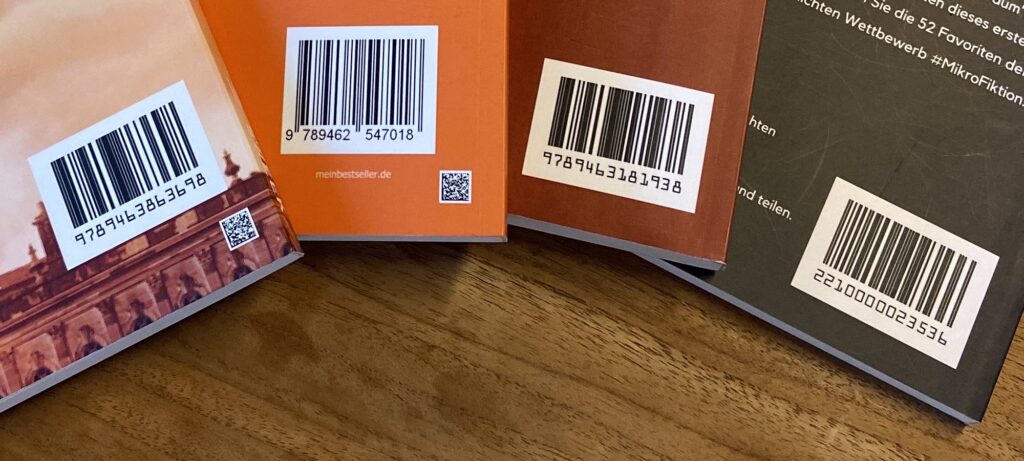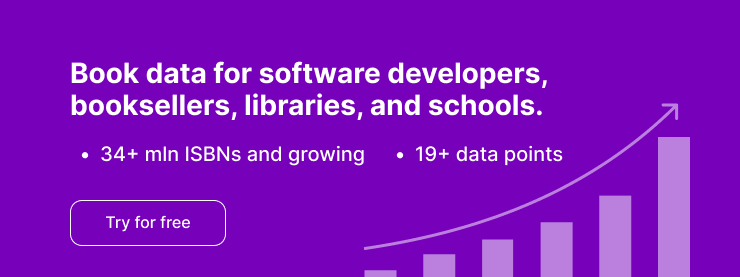
ISBNs, or International Standard Book Numbers, play an integral role in book identification and handling. Publishers, booksellers, software developers, libraries, educational institutions, and all other organizations from the book industry rely on ISBNs in their everyday work. Nowadays ISBNs are used in more than 150 countries worldwide.
- Brief History of ISBN
- Do ISBNs consist of Random Numbers?
- Why is ISBN Lookup the Most Reliable Method to Find the Right Book?
- Is Precise Identification of Books Important?
- How Do Book Industry Professionals Perform ISBN Lookup?
- Can ISBNdb Help to Make ISBN Lookup More Efficient?
Brief History of ISBN
The idea of a standardized numbering system takes its roots in 1965, when W.H. Smith, the largest book retailer in the UK at the time, announced plans to computerize their warehouse in 1967. To facilitate this process, W.H. Smith created a numbering system called the Standard Book Numbering (SBN), which was successfully implemented in 1967 as per the original plan.
This brilliant innovation came into sight of the International Organization for Standardization (ISO), which further developed the concept and introduced the ISBN number in 1970.
At the onset, ISBNs consisted of 10 digits. Although the fundamental structure has remained the same, certain modifications were implemented to adapt to the continuously increasing number of published books – in 2007 ISBNs became 13-digit with the introduction of the 978 prefix, and the 979 prefix was added in 2020. The purpose of the prefixes is to accommodate the growing number of books being published.
Do ISBNs consist of Random Numbers?
Actually, no. 10-digit ISBNs consist of 4 sections, while 13-digit ones consist of 5 sections. Each section makes the book identification more detailed.
- Section 1 equals either 978 or 979 and is applicable only to 13-digit ISBNs. The prefix means that the number is an ISBN and not some other identifier.
- Section 2 may be from one to five digits long. It stands for the country of origin and language.
- Section 3 (up to seven digits) denotes the publisher of the book.
- Section 4 (up to six digits) refers to the edition of the book.
- Section 5 is a check digit. It is a single number (1-9) or the letter X, which means the number 10. The Check Digit is calculated based on the previous digits of an ISBN and is used for ISBN validation.
Why is ISBN Lookup the Most Reliable Method to Find the Right Book?
Some people think it makes no difference whether to search a book by ISBN or title. However, that’s not the case, especially if the book in question has a number of editions and variations like ebook, audiobook, paperback, etc.
ISBNs provide a unique identifier for each version of a book, which means that no two book editions or variations share the same ISBN. This reduces the likelihood of confusion or errors.
ISBN lookup is typically performed using a database that is regularly updated. This ensures that the information retrieved from the database is accurate and up-to-date.
The reliability of ISBN lookup can provide a more efficient means of finding the right book compared to other methods, such as searching by title or author, which is a lot less exact and much more time-consuming.
Is Precise Identification of Books Important?
Getting a wrong edition may not be a big deal for a reader who needs a book for leisure. However, it may cause serious problems for book industry professionals, who need to identify books accurately and ensure that the right books are ordered and cataloged in bookstores, libraries, or software applications, for example.
Proper identification is crucial both for customers to find the books they are looking for and for industry professionals who can better manage books, track sales data, and inventory levels, which is essential for managing supply chains and making informed business decisions.
Overall, accurate ISBN lookup is a fundamental aspect of the book industry, and it plays a critical role in ensuring that books are managed, distributed, and purchased in an efficient manner.
How Do Book Industry Professionals Perform ISBN Lookup?
There are several methods:
- ISBN databases. The databases that are regularly updated usually provide accurate and up-to-date information about books.
- Barcode scanners. Bookstores and libraries often use such devices to scan the ISBN barcode on a book. The scanner then retrieves the ISBN information from a database.
- Mobile apps. They allow scanning ISBN barcodes with the help of a smartphone or tablet camera. These apps typically fetch information about books, such as the title, author, publisher, etc.
- Cataloging software. Libraries and bookstores use cataloging software that allows them to search for books using various criteria, including ISBN. This software can retrieve information about the book and allow for easy cataloging and shelving.
The three latter methods are powered by ISBN databases because any device or software is useless unless it is connected to an extensive ISBN database.
Can ISBNdb Help to Make ISBN Lookup More Efficient?
Well, as you probably guessed, I wouldn’t ask this rhetorical question if we couldn’t.
Book industry players are investing loads of time and money into the optimization of book inventory management and bookselling. ISBN lookup is employed at multiple stages of these processes – customers and bookstore employees search for books by ISBN when trying to find the right books; automated software systems use ISBN lookup to pull inventory data, build sales reports, automatically create orders, etc.
Access to a large ISBN Database is the backbone of efficient ISBN lookup.
ISBNdb is the oldest ISBN database provider with API. Our crawlers gather data from hundreds of libraries, publishers, merchants, and other sources. ISBNdb database contains information on more than 34 million books, and a few million books are added to it every year. With up to 19 data points for each book, it is an abundant source of book information. Each of the reasonably priced subscription options comes with a 7-day free trial, so feel free to check them out and choose the one that suits you best.









